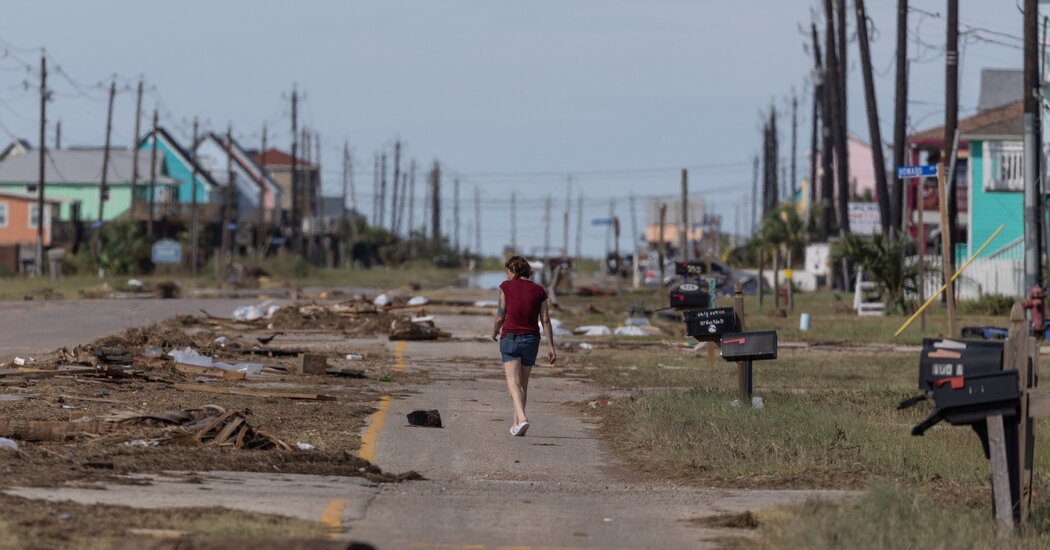The National Oceanic and Atmospheric Administration said on Thursday it would stop tracking the cost of the country’s most expensive disasters, those which cause at least $1 billion in damage.
The move would leave insurance companies, researchers and government policymakers without information to help understand the patterns of major disasters like hurricanes, drought or wildfires, and their economic consequences, starting this year.Those events are becoming more frequent or severe as the planet grows hotter, although not all disasters are linked to climate change.
It’s the latest effort from the Trump administration to restrict or eliminate climate research. In recent weeks the administration has dismissed the authors working on the nation’s biggest climate assessment, planned to eliminate National Parks grants focused on climate change, and released a budget plan that would cut significantly climate science from the U.S. Geological Survey and the Energy and Defense departments.
Researchers and lawmakers criticized Thursday’s decision.
Jesse M. Keenan, associate professor and director of the Center on Climate Change and Urbanism at Tulane University in New Orleans, said ending the data collection would cripple efforts by federal and state governments to set budgets or make decisions on investment in infrastructure.
“It defies logic,” he said. Without the database, “the U.S. government’s flying blind as to the cost of extreme weather and climate change.”
In a comment on Bluesky, Senator Ed Markey, Democrat of Massachusetts, wrote “It’s anti-science, anti-safety, and anti-American.”
Few institutions can duplicate the kind of information provided by the database, said Virginia Iglesias, a climate researcher at the University of Colorado. “It’s one of the most consistent and trusted records of climate-related economic loss in the country,” she said. “The power of the database lies in its credibility.”
So-called billion-dollar disasters — those with costs that balloon to seven figures are more — have been increasing over time. In the 1980s, when NOAA began compiling these lists, there were just over three per year, on average, when adjusted for inflation. For the period from 2020 to 2024, the average was 23 per year.
In total, at least 403 such events have occurred in the United States since 1980. Last year there were 27, a tally second only to 2023 (which had 28).
Last year’s disasters included hurricanes Helene and Milton, which together caused about $113 billion in damages and more than 250 deaths, a severe hailstorm in Colorado that caused about $3 billion in damages and a yearlong drought across much of the country that caused $5 billion in damages and claimed the lives of more than 100 people from heat exposure.
NOAA’s National Centers for Environmental Information plans to stop tracking these billion-dollar disasters in response to “evolving priorities, statutory mandates, and staffing changes,” the agency said in an email.
When asked, the agency did not say whether another branch of NOAA or federal agency would continue tracking and publicly reporting the price tag of such disasters. The announcement said the agency would make archived data from 1980 to 2024 available. But the dollar amount of disasters from 2025 on, such as the Los Angeles wildfires and their estimated billions of dollars of damage, would not be tracked and reported to the public.
“You can’t fix what you don’t measure,” said Erin Sikorsky, the director of The Center for Climate and Security. “If we lose this information about the costs of these disasters, the American people and Congress won’t know what risks climate is posting to our country.”
Other institutions or agencies would likely be unable to duplicate the data collection because it includes proprietary insurance information that companies are cautious to share, Ms. Sikorsky said. “It’s a pretty unique contribution.”


